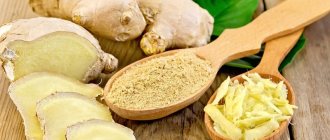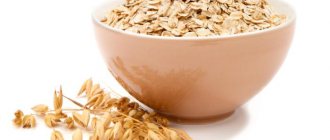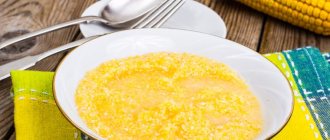Gardening » Citrus » Lemon
0
1029
Article rating
Kira Stoletova
Lemon during breastfeeding is beneficial not only for the nursing mother, but for the baby. However, not everyone has the opportunity to eat citrus fruits, because lemon is a strong allergen.
Lemon in the diet of a nursing mother and baby
Benefits of lemon
Biologically active substances in citrus fruit have a positive effect on the body:
- Due to the presence of vitamin C in large quantities, it helps the body of the mother and child fight colds and prevents viral infections.
- Stimulates lactation and enhances milk production.
- Has antiseptic properties.
- Increases the elasticity of capillaries, which improves the performance of the cardiovascular system, prevents the formation of blood clots and is a good prevention of varicose veins.
- Reduces cholesterol.
- Cleanses the body of waste and toxins.
- Improves skin condition and gives the face a vibrant glow.
Composition and calorie content of lemon
Lemon is a tree-like plant that grows in a subtropical climate.
Lemon is an exotic fruit that does not grow in central Russia. The product reaches the shelves after transportation from India, China, Mexico, Argentina, Turkey and other regions with hot climates. Since ancient times, it has been known about the unique property of lemon to support the immune system during periods of colds. This is due to the high content of vitamin C - ascorbic acid, which also strengthens blood vessels and connective tissue. At the same time, lemon is not the undisputed leader among food products in terms of the content of this nutrient. It is worth taking into account that vitamin C is extremely sensitive to high temperatures and is destroyed when heated above 60 degrees. For this reason, fresh lemon or as part of non-hot drinks is most useful, but there is almost no vitamin C in lemon baked goods, pies and desserts.
Gourmets value lemon for its characteristic refreshing sourness, characteristic of organic acids (including citric acid), which are abundantly present in the fruit. Lemon contains vitamins B, E, and PP. The mineral composition contains potassium, calcium, magnesium, phosphorus, copper, iron, and natural plant antioxidants. The characteristic citrus scent of lemon is provided by the essential oils contained in the peel of the fruit. Lemon aroma is known for its invigorating effect on the body. The calorie content of lemon is low - only 30–35 kcal per 100 g, which allows it to be classified as a dietary product.
Table: chemical composition and calorie content
| Nutrient | Quantity | % of the norm in 100 g* |
| Calorie content | 34 kcal | 2% |
| Squirrels | 0.9 g | 1.2% |
| Fats | 0.1 g | 0.2% |
| Carbohydrates | 3 g | 1.4% |
| Vitamins | ||
| Vitamin A, RE | 2 mcg | 0.2% |
| beta carotene | 0.01 mg | 0.2% |
| Vitamin B1, thiamine | 0.04 mg | 2.7% |
| Vitamin B2, riboflavin | 0.02 mg | 1.1% |
| Vitamin B5, pantothenic | 0.2 mg | 4% |
| Vitamin B6, pyridoxine | 0.06 mg | 3% |
| Vitamin B9, folates | 9 mcg | 2.3% |
| Vitamin C, ascorbic acid | 40 mg | 44.4% |
| Vitamin E, alpha tocopherol, TE | 0.2 mg | 1.3% |
| Vitamin RR, NE | 0.2 mg | 1% |
| Macronutrients | ||
| Potassium, K | 163 mg | 6.5% |
| Calcium, Ca | 40 mg | 4% |
| Magnesium, Mg | 12 mg | 3% |
| Sodium, Na | 11 mg | 0.8% |
| Sera, S | 10 mg | 1% |
| Phosphorus, Ph | 22 mg | 2.8% |
| Chlorine, Cl | 5 mg | 0.2% |
| Microelements | ||
| Iron, Fe | 0.6 mg | 3.3% |
| Manganese, Mn | 0.04 mg | 2% |
| Copper, Cu | 240 mcg | 24% |
| Molybdenum, Mo | 1 mcg | 1.4% |
| Fluorine, F | 10 mcg | 0.3% |
| Zinc, Zn | 0.13 mg | 1.1% |
% of the norm in 100 g* - approximate values for a middle-aged nursing woman
Use during pregnancy
If you have diseases of the gastrointestinal tract or allergies prior to pregnancy, drinking lemon is allowed only after consulting a doctor. But if a woman is absolutely healthy, there is no reason to refuse to eat lemon fruits.
In the first trimester of pregnancy, eating fruit will help the expectant mother cope with toxicosis. Dilute lemon juice in water and consume in the morning. Also, immediately after waking up, before getting out of bed, place a slice of lemon in your mouth for a minute.
For colds in the early stages of pregnancy, when many medications cannot be taken due to a negative effect on the formation and development of the fetus, consuming citrus fruits will help. Adding the fruit to herbal tea will speed up recovery and strengthen the immune system without harming the child.
In the later stages of pregnancy, when an enlarged uterus puts pressure on the internal organs, kidney function deteriorates, heartburn and constipation appear, tea with lemon will help:
- stabilize stomach acidity;
- improve intestinal motility;
- fill the breast with milk;
- cope with swelling.
Use for breastfeeding
Lemon can cause allergies
A child's first encounter with citrus fruits occurs during breastfeeding. You should start drinking lemon while breastfeeding no earlier than a month after giving birth. It is necessary for the baby’s body to become stronger and slightly adapt to the new environment. A breastfeeding woman should not introduce several new foods into her diet in one day, so as not to cause allergies in the child.
Lemon during breastfeeding should be introduced gradually, with a lemon tea drink. Afterwards, you need to observe the baby’s reaction throughout the day.
A drink with lemon during breastfeeding invigorates the nursing mother, but it can also provoke active behavior of the baby throughout the day, so during breastfeeding the best time to drink it is in the morning. If weak tea does not cause negative reactions in your baby, you should try another way of consuming citrus.
Before adding lemon to tea, you should wait until it cools down a little, because vitamin C, which the mother and child’s body needs, is destroyed under the influence of boiling water.
If a child develops an allergy, it is prohibited to consume lemon again.
Beneficial properties of citrus
Lemon teas are included in the list of products approved by a doctor to improve the quality of milk. Naturally, the child is first checked to ensure that the child is not allergic to citrus fruits.
Observations show that tea with a slice of citrus increases the flow of milk, saturates it with vitamins necessary for the growth and immunity of the baby.
This drink has many beneficial properties, they can only be partially listed:
- The uniqueness of tea with lemon. It is expressed in cleansing agents. Even a weak infusion removes viruses and toxins from the blood of mother and baby.
- Treatment of colds. The most effective remedy for colds for mother and child is tea with a slice of citrus. It relieves the symptoms of a cold and stimulates the mother’s own immunity to resist the cold.
- Treatment for postpartum stress. Tea with a slice of citrus is a natural calming remedy. Constant use of the drink eliminates the feeling of anxiety and relieves general fatigue.
- The presence of flavonoids necessary for mother and baby to strengthen the functions of the hematopoietic system. Flavonoids strengthen the walls of blood vessels and improve blood flow.
- Antiseptic properties of lemon. They cope with penetrating infections and inflammatory microbes.
- Lemon acid. It benefits the digestion of a nursing mother. The acid helps dissolve stones in the kidneys and easily removes the products of their decomposition.
The content of a large amount of vitamin C is the main beneficial property of citrus. This vitamin has antioxidant properties, activates cell renewal, restores the female body after childbirth, and helps the baby grow and develop normally.
For nursing mother
In addition to ascorbic acid, lemon contains iron, sodium, zinc, calcium, malic and citric acids, vitamins B, P, A.
Lemon strengthens a woman’s body after childbirth due to:
- strengthening the muscles of the heart and blood vessels;
- strengthening the structure of bone and dental tissue, nail bed;
- improve digestion, remove toxins;
- diuretic effect, gentle dissolution of kidney stones.
But if the mother has a history of gastroduodenal lesions or stomach ulcers, then lemon will have to be abandoned. Another contraindication to the use of lemon in the mother’s diet is the presence of a severe form of polyvalent allergy in the child.
When there are no contraindications to the use of lemon, a nursing mother should definitely include fresh lemon juice in her diet. It will improve lactation and the quality of mother's milk.
For the baby
There are several secrets for nursing mothers that will ensure that the newborn receives the beneficial properties of lemon. Pediatricians recommend eating lemon fresh. But there are various ways to introduce citrus into the menu - add its zest to baked goods, make jam from it.
However, during natural feeding of the baby, the most valuable thing is the use of fresh lemon juice.
Tips on how to enhance the benefits of citrus fruit for a child:
- steep boiling water decomposes ascorbic acid, so it is recommended to put a citrus slice in cooled tea;
- When fresh juice is added to water, it becomes a tonic drink. Its taste can be improved with honey, if the child is not allergic to it;
- In order for the baby to develop bone and dental tissues well, it is recommended to season salads and sauces with juice.
A sensible approach to including lemon in a mother's diet will benefit both her and her baby. It will enrich the mother’s diet and have a positive effect on the child’s health.
But in everything you need to know when to stop, because ascorbic acid can add sourness to milk, juice should be used little by little.
All citrus fruits are strong allergenic fruits; they cause food allergic manifestations in a child in the form of skin rashes, loose stools with mucus. The mother needs to monitor the baby’s condition after feeding him, when she herself drinks tea with citrus, in order to know exactly what causes deviations in the baby’s condition.
Citrus in a baby's diet
Lemon should not be given to a newborn baby. This fruit is contraindicated for children under 6 months due to the presence of fruit acid in it. Only a doctor can determine exactly from how many months a child should be given a fetus.
The sour taste of the fruit will be unpleasant for the baby. A great danger lies in the difficulties with digestion of citric acid by a fragile little organism. A common reaction to citrus fruits is the appearance of a rash.
The optimal period for introducing lemon into a child’s diet is 8-10 months. This is the age when babies are able to distinguish the taste of food. Some parents try giving water with lemon juice as early as 6 months.
Start with a small piece and monitor the reaction for 2 days. During this period, also refrain from introducing new products. Sometimes the first dose is fraught with the appearance of diaper rash or a rash near the mouth.
Children who are predisposed to allergic reactions should absolutely not be given lemon until they are one year old.
You can safely give a 2-year-old child lemon slices with sugar. In this case, you need to monitor whether redness appears on the face. Children's consumption of lemon should be moderate, as excess citric acid can harm the child's digestive system.
How to make tea with lemon
You need to choose good quality tea leaves (leaf), without additives or flavorings. Black is preferred (green has too much caffeine). First, prepare the tea, steeping the drink for 2-3 minutes, no longer. A nursing mother can drink exceptionally weak tea, so it is important to observe the proportions of tea leaves and boiling water. For one cup - a quarter of a teaspoon. If the drink turns out to be too strong, it will contain a huge amount of tannins (they have strong strengthening properties) - they cause constipation in the baby.
Before peeling the fruit, it is recommended to pour boiling water over it to get rid of bacteria. A slice of lemon should be added to an already cooled drink. Because high temperatures destroy vitamin C.
A nursing mother can treat herself to lemon tea, but it is important to monitor the baby's reaction. In addition, portions should be small. Otherwise it will affect the nervous system.
It happens that the first acquaintance with this product was unsuccessful. For example, a rash appeared. Don't give up citrus right away. Perhaps lemon tea was introduced into the diet too early or the amount of lemon was too large. The experiment can be repeated after a few weeks. Another possible reason is a bad time when immunity is low. For example, the baby was worried about teeth or colic. If a negative reaction manifests itself as anxiety or excessive excitability, drinking the drink should be postponed to the morning.
Contraindications
Considering the aggressive effects of citric acid and the sharp taste, it is undesirable to consume this fruit for a number of conditions.
Contraindications for use include the following diseases:
- high blood pressure;
- stomach ulcer;
- acute pancreatitis;
- cholecystitis;
- kidney disease;
- hepatitis;
- caries and thinning of tooth enamel.
It should also not be used if there are pronounced inflammatory processes in the nasopharynx, larynx and throat. The acid in the composition can provoke irritation in the affected areas and increase pain.











